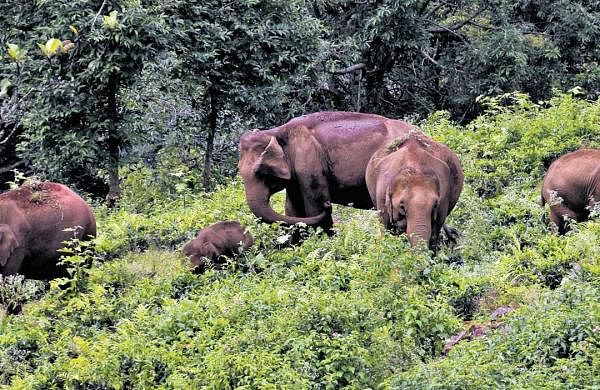Express News Service
DEHRADUN: For the first time in the country, a census exercise of elephants has been carried out with the help of DNA samples. The Wildlife Institute of India has completed this census in all the sanctuaries of the country with the help of DNA samples taken from elephant dung while camera traps were used to help with the calculation.
The census report has been sent to the Central government and is expected to soon be released by the Union Ministry of Forest and Environment. Speaking at the 34th annual two-day research workshop at the Wildlife Institute of India, its director Virendra Tiwari said that they were constantly working for the conservation of elephants.
“For the first time, DNA-based calculations have also matched the results of DNA profiling with cameras installed in the reserve forest to make accurate calculations,” said Tiwari. “The DNA profile will help gather a lot of information about elephants as well as know and preserve their behaviour,” Tiwari added.
DNA profiling from elephant dung will now be analysed for research. “The DNA profiling is expected to help identify elephant corridors and reduce human-elephant conflict,” Tiwari said, adding, “There are around 1,000 elephants near temples and institutions in several states, including Assam and Kerala. This will go a long way in preventing smuggling of elephants”.
DEHRADUN: For the first time in the country, a census exercise of elephants has been carried out with the help of DNA samples. The Wildlife Institute of India has completed this census in all the sanctuaries of the country with the help of DNA samples taken from elephant dung while camera traps were used to help with the calculation.
The census report has been sent to the Central government and is expected to soon be released by the Union Ministry of Forest and Environment. Speaking at the 34th annual two-day research workshop at the Wildlife Institute of India, its director Virendra Tiwari said that they were constantly working for the conservation of elephants.
“For the first time, DNA-based calculations have also matched the results of DNA profiling with cameras installed in the reserve forest to make accurate calculations,” said Tiwari. “The DNA profile will help gather a lot of information about elephants as well as know and preserve their behaviour,” Tiwari added.googletag.cmd.push(function() {googletag.display(‘div-gpt-ad-8052921-2’); });
DNA profiling from elephant dung will now be analysed for research. “The DNA profiling is expected to help identify elephant corridors and reduce human-elephant conflict,” Tiwari said, adding, “There are around 1,000 elephants near temples and institutions in several states, including Assam and Kerala. This will go a long way in preventing smuggling of elephants”.





